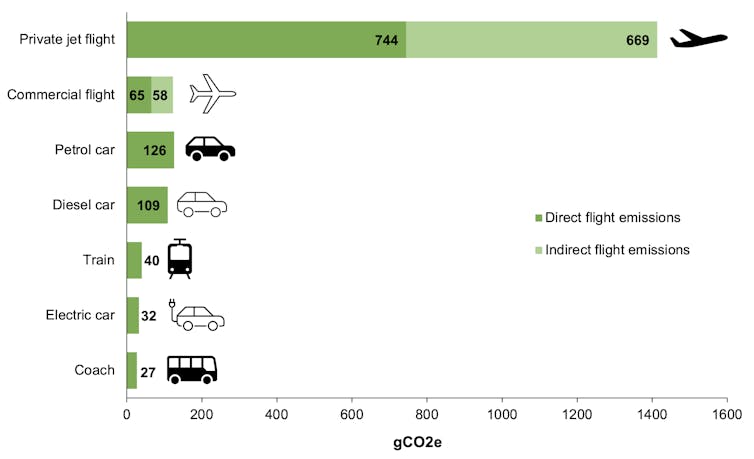Rishi Sunak, David Cameron and King Charles are just three of the more than 70,000 delegates from nearly 200 countries at the latest UN climate summit in Dubai, COP28. But they are among hundreds who will have travelled there by private jet. In fact, the UK prime minister, foreign secretary and king even travelled in three separate planes.
At COP27 in Egypt last year, around 315 private jet journeys took place. This is an extraordinary statistic, especially as fewer world leaders attended that COP, as many were busy at a G20 summit in Bali.
That’s why we set up a team of academic experts to estimate the carbon footprint of travel to this year’s meeting, COP28 in Dubai, for different modes of transport including private jets. We ultimately want to empower attendees to make informed climate-conscious travel choices.
We also compared the carbon footprints for the past three COPs to help see where the conferences could be located in order to dissuade attendees from using private jets, unless absolutely essential for security. The use of private jets last year – and presumably this year too, though we don’t yet have full data – suggests this is becoming the new norm and has moved beyond just essential world leaders.
Read more here!

Comments
Post a Comment